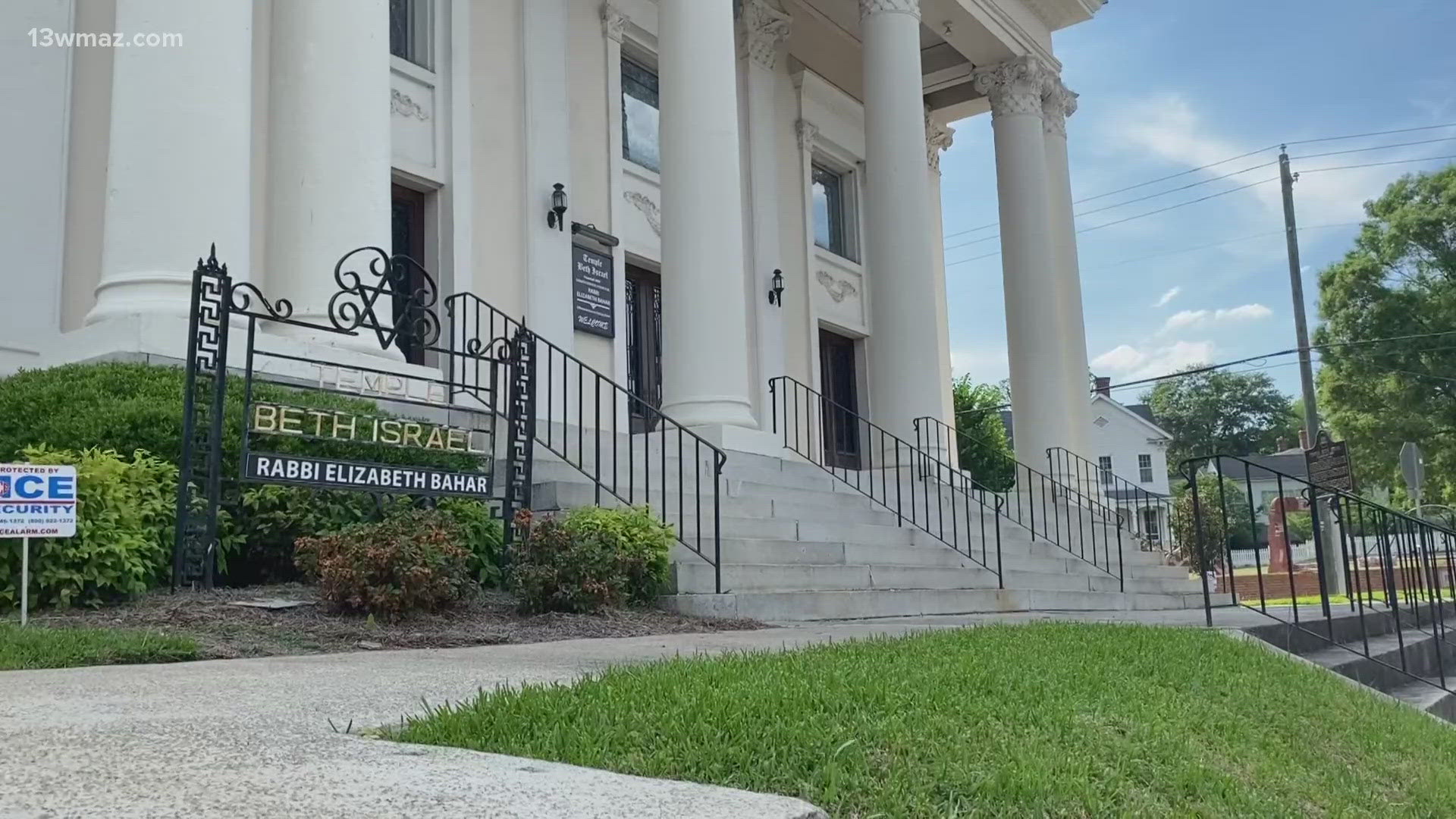MACON, Ga. — A case of domestic violence, a history of sending multiple threatening letters to Jewish people and a racist and antisemitic candle business — those are all allegations outlined by federal prosecutors against a North Carolina man, Ariel Collazo-Ramos.
They say Collazo-Ramos sent one of those threatening leaders to Macon Rabbi Elizabeth Bahar.
The revelations come in a court filing in the U.S. Middle District of Georgia hoping to keep Collazo-Ramos behind bars as his case moves through the federal court system.
The documents offer a better picture of the man behind the offensive letters, which compare Jewish people to rats and offer to sell the gas used to kill innocent Jews during the Holocaust.
They say "there are no conditions of release which will reasonably assure the safety of any other person or the community," prosecutors argue in their filings.
But not only did prosecutors say Collazo-Ramos sent those letters to Bahar, they say also he did it to others — and also sold candles with similar offensive messages degrading Black and Jewish people.
They say it is a candle company run out of his High Point, North Carolina, home.
Prosecutors say Collazo-Ramos sold a candle named after the gas used against Jewish people and one disparages the work ethic of Black people.
Another candle included a white supremacist quote from a convicted felon who was sentenced to 190 years in prison for his role in a white nationalist group prosecutors say assassinated a Jewish radio show host, they said.
Those sentiments were also expressed in other threatening letters not only to Bahar but also to a Georgia legislator, Esther Panitch, who spoke in support of a bill defining antisemitism that was signed into law last year.
After a crowd of antisemites gathered outside of Temple Beth Israel in downtown Macon last summer, prosecutors note that Bahar too got involved in the bill seeking to define antisemitism, even testifying before the Georgia Senate Judiciary Committee.
Both those letters were postmarked from a USPS facility in Greensboro, NC, and sent in January and February.
They outline example after example of other threatening letters sent to anti-hate groups, temples and even an Atlanta-based Jewish-owned cookie shop. In total, they believe he sent them to almost eight separate Jewish people, businesses and organizations.
After he boasted about the threatening letters on a right-wing social media site, prosecutors say another user told him to "keep the images to himself for a week" and another user said prosecutors could charge him with a hate crime for those messages.
In response, he said "I appreciate your concern, but it is what we do." Then, on April 9, Collazo-Ramos was indicted by a federal grand jury on one count of mailing threatening communications. He faces up to five years in prison and a $250,000 fine.
However, the document also outlines a previous case of domestic abuse, where North Carolina prosecutors say Collazo-Ramos slapped and punched his wife in her face and threatened to "drown her in a [used] toilet bowl" during a fight.
They say it caused multiple injuries, but he then gave his wife two options for punishments, prosecutors say: 1. shave her head and eyebrows and pull out her fingernails or 2. be driven to the homes of her friends and family "so she could explain to them what she had done to cause embarrassment and shame."
After choosing the second option, they were driven to the houses of family and friends, after which a family member called 911, prosecutors say. He was indicted in June of kidnapping and assault on a female.
Those facts are why prosecutors are asking a judge to keep Collazo-Ramos behind bars as his case moves through the courts. The case is being prosecuted by Will Keyes, and they are awaiting Collazo-Ramos' transfer to middle Georgia for his initial appearance.

